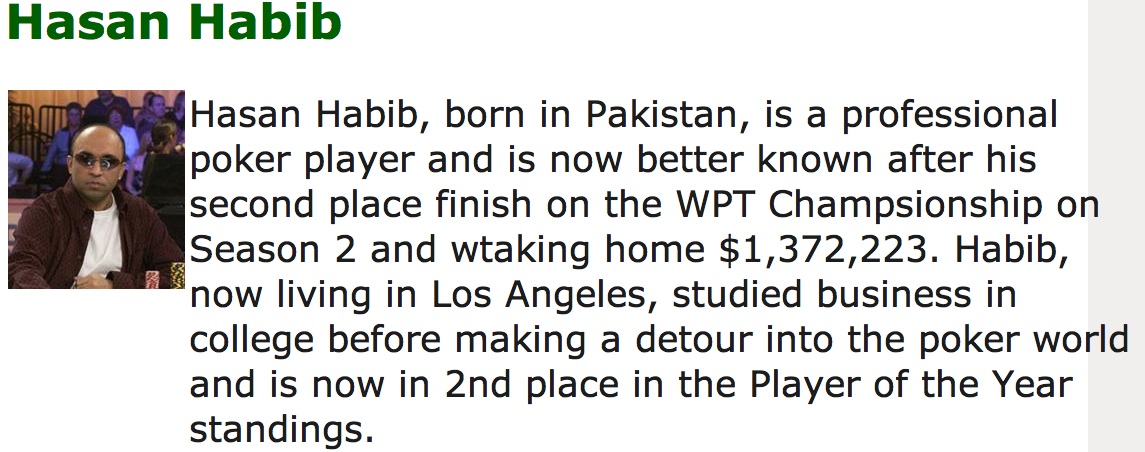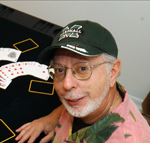when i googled “poker islam” first time, up came hasan habib.

i would like to represent hasan habib is the muslim court of public opinion against the thought that a good muslim does not play poker.
was mohammed a man who saw truth for himself and preached that others should live like he lived?
poker teaches skill seeing truth for yourself.
why would it be a positive move against terror to engage the muslim world in consideration whether internet poker is a mode of learning muhammed would have loved or shunned?
first, because the question is a good one. it probes an ambiguity in the meaning of the qua’ran and leads back to what muhammed would really have thought if he were to be again a leader in the internet environment of our present day.
the question is of particular appeal to men between teenager and mid life, the power demographic who man the gangs and fight the wars and wield the bombs of terror. these are men who will not only be fascinated by the test and quest for the skill of deception at the heart of poker but will see the wisdom of sun tzu in its mastery.

the question reaches out to young men on all sides with a teaching of intelligence far more likely to reach and calm hearts and minds than are the guns and bombs of terror.
the question speaks to the imams at an academic level of challenge they should respect.
the question speaks to any man or woman who sees that skill at judging what is true is a form of intelligence, more so to those who would agree that our current approach to resolution of dispute lacks intelligence and promotes results good muslims and good americans abhor.
the question reaches out from america to the muslim world with a combination of great american accomplishments, the invention of the game of poker and internet. poker is a great and constructive american social sport.
the question turns on a revelation to muhammed from which has come the muslim stance on gambling. in one meaning the word he used is gambling, in another games of chance.
games of chance meaning lottery, the casting of lots, which muhummed and all enlightened leaders should abhor as a form of cheat upon the people selling them hope at losing odds, the very opposite of which is poker. poker skill predominates over chance. that is the point. poker trains a human ability to predominate is some small measure over the world of chance in which we live our lives. poker teaches how to handle chance, how to think about chance in relation to money. poker trains a person’s confidence to see truth for him or herself, thus better to enable intelligent productive participation in teams. poker trains better citizens for democracy.
the argument for internet democracy epitomized by the values and skills projected by poker has potential to reach every intelligent man and woman on the planet. internet democracy is an argument for peace.
knowledge beyond authority